Global Finance interviews senior executives from some of the banks featured in this year’s World’s Safest Banks rankings.
Back To Issue
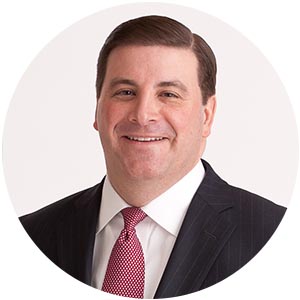
AgriBank: Serving The Agricultural Industry
AgriBank is a member of the Farm Credit System, which was created almost a century ago (1916) with the goal of providing funds for rural America. “Being a safe bank is important to us for our mission to serve our community and the agricultural industry with reliable, consistent credit not only for today but also in the future,” says Brian O’Keane, CFO of AgriBank. “The recognition of being the safest bank in the United States really means a lot to us in terms of performing our mission.”
Global Finance: How do you explain your move upward in the 2015 rankings?
O’Keane: The reduction in some commodity prices created some challenges for our customers and ultimately for us on how we managed credit. But if you look at the credit quality of our portfolio in the broader districts, it remained very strong, and that is the result of the things we have done.
The addition to capital and steady performance in terms of credit underwriting, the quality of wallet earnings in light of what is becoming a more dynamic environment—that is really what contributed to the bank moving up [in the rankings]. We also saw growth in our particular portfolio, as there is more demand for loans to finance farm acquisitions for land, and that was reflected in us moving up year-over-year.
GF: What is the outlook for your business?
O’Keane: We have seen the rate of growth in our loans, year-over-year, declining. Last year our loans grew in the neighborhood of 7%, and this year we are probably looking at growth of around 5% to 6%. This is attributable to commodity prices’ coming down from their highs. We still see some pockets in the areas that we serve that are very strong, and so we still see growth, but not at the accelerated pace we would have seen three or four years ago.
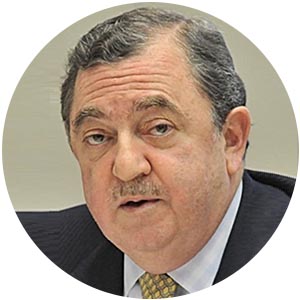
BancoEstado: Constant Innovation
Global Finance: What did you do in the past 12 months to keep your bank one of the safest in the world?
Carlos Martabit: Since 2012, BancoEstado has been awarded safest bank in Latin America four times in a row. Our strengths are a strict market-risk, credit and operational policy; strong liquidity management, with around 30% of our assets in sovereign papers; and diversification of our liabilities. The Chilean banking system has a proven track record of consolidated risks. BancoEstado’s main strategies are the improvement of our costs through technologies and constant innovation in development of products for our customer needs.
GF: What is the outlook for banks in Latin America?
Martabit: Latin American banks will continue the consolidation process.
GF: What is the bank’s outlook for the months to come?
Martabit: We maintain a positive outlook for the remainder of the year and next year. BancoEstado is developing new products, targeting new segments and providing access to funding both locally and internationally.
GF: What risks do you face in the short-to-medium term?
Martabit: The main risk is a negative commodity cycle. Movements on commodity prices are always on my radar. BancoEstado is prepared for a slowdown via a diversified asset portfolio and maintaining enough additional provisions. Furthermore, Chile has strict fiscal and monetary policies.
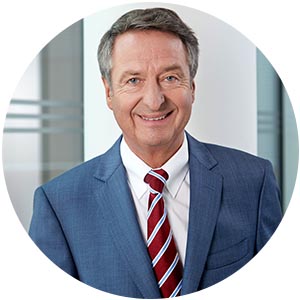
KfW: A Sustainable Approach
Global Finance: KfW tops the list of the World’s Safest Banks again in 2015. What did you do in the past 12 months to keep that reputation intact?
Ulrich Schröder: As Germany’s flagship development agency, KfW is one of the world’s largest financiers of green investments. Amongst identified macro trends, environment and climate protection enjoys the highest relevance for our lending. In our funding, we almost solely rely on capital markets. Last year we issued two inaugural, award-winning green bonds of €1.5 billion ($1.7 billion) and $1.5 billion, contributing to about 5% of our funding program. Besides safety and solidity, our investors appreciate our sustainable approach in capital markets.
GF: What is the business outlook like for the remainder of 2015 and for 2016?
Schröder: About two-thirds of our business activities are domestic. However, we currently see a rising share of our international activities. In 2015 and in the coming year, we continue to focus on successfully contributing to the development of innovation, growth and climate protection in Germany and around the world. In capital markets, sustainability aspects will continue to have a strong weight. Therefore, we will proceed with extending our green bond approach based on high-quality standards.
GF: What are the major risks ahead?
Schröder: The low-interest-rate environment and increasing regulatory costs are challenging for banks, including KfW. Economically, despite anticipated growth of 1.5% in the eurozone this year, unemployment in Europe remains way too high, and it is preventing a greater upswing. Without a common solution for the refugee crisis, Europe is facing long-term disruption to trade.
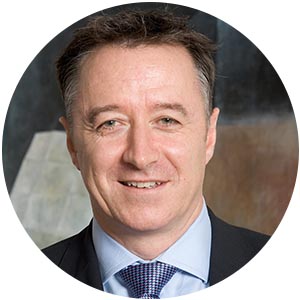
Kiwibank: Success Through Diversification
Kiwibank is owned by New Zealand Post, which is 100%-owned by the New Zealand government. The bank made its debut in this year’s ranking of the World’s 50 Safest Banks.
Global Finance: In recent results, you mentioned a diversification of your business. How has this policy affected the safety of the bank?
Paul Brock: Our diversification strategy focuses on wealth management, insurance and asset finance, as well as continuing to expand our presence in business markets. This ongoing diversification has a positive impact for us, as it means we are not overly exposed to one particular sector.
GF: What is the bank’s outlook for the coming months and for 2016?
Brock: Our strategy is very much one of continuing to aim for profitable growth. As we are still a young bank, we have good opportunities for further market growth in the personal and business banking sectors.
GF: What are the risks you face in the short-to-medium term?
Brock: Areas that we are aware of include dealing with increasing regulation and a growing compliance burden and facing changing customer needs. In addition to this, we are conscious of nontraditional bank competitors—the disruptors in the market—and ensuring we stay relevant and up-to-speed with what they are doing.
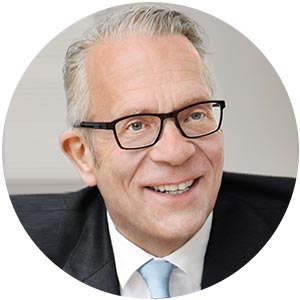
L-Bank: Upbeat Investment
Global Finance: What did you do in the past 12 months to keep your bank one of the safest in the world?
Axel Nawrath: The great result we achieved yet again in the rankings shows that L-Bank’s forward-looking philosophy works. It’s our statutory duty to support the state of Baden-Württemberg in the discharge of its official tasks. That’s why we are involved, on our owner’s behalf, in economic, structural and social policy areas.
GF: What is the bank’s outlook for the months to come?
Nawrath: The continuing low-interest-rate cycle has made life difficult for those in the development banking sector. On the one hand, income levels are affected, whilst on the other, regulation and digitalization are leading to increasing cost pressures. Our development activity is in any case highly dependent on the way growth happens in Baden-Württemberg itself, because of the link to our public-service obligations. In particular we have noticed an increase in the willingness of businesses in Baden-Württemberg to invest, so we can look to the future with confidence. Look at the results of our economic development activity in the first half, when we were able to disburse around €1.9 billion ($2.1 billion) in development loans. So, we’re upbeat.
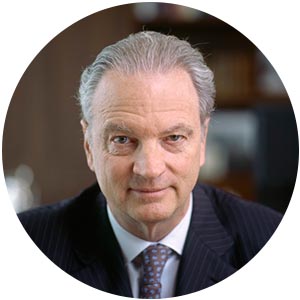
Pictet Group: Prudent Risk Management
Global Finance: Pictet Group is the parent of Pictet & Cie, which is the company we rated for our safest banks story. Overall, what does the group do to ensure the stability of the bank?
Jacques de Saussure: We are a partnership. Personal responsibility and prudent risk management have always been essential characteristics of Pictet Group’s governance. This policy is expressed in a high liquidity coverage ratio, which reflects our conservative balance sheet policies. The Group’s equity level is well in excess of the Swiss legal requirements, which are among the most stringent in the world. Pictet’s financial solidity and rigorous risk management were confirmed by Fitch Ratings and Moody’s, which awarded Pictet some of the highest possible ratings in the banking world since 2005 and 2009 respectively. These ratings have remained stable throughout the financial crisis.
GF: Some experts predict a shift in the Swiss banking business linked to the erosion of financial secrecy. Are you preparing for it?
De Saussure: First, Pictet has a diversified business, with wealth management, asset management and asset services complementing one another, which provides great stability to the Group. Secondly, our wealth management business has long been founded on tax-compliant assets, not least because we have a comprehensive and well-established European network. Compliance with local legislation is therefore of prime importance.
Finally, despite regulatory changes that have affected banking secrecy, the principles of discretion and confidentiality and respect for the personal sphere are very much part of Swiss society’s DNA, and clients value that.
GF: Pictet & Cie faces a possible financial penalty linked to the US Department of Justice’s investigation into tax-related offences. What are you doing to prepare for that?
De Saussure: We have been in regular contact with the US authorities since October 2012 in order to discuss Pictet’s individual situation. We believe that these bilateral discussions are conducive to a balanced presentation of Pictet and will facilitate a resolution of the matter that will reflect our bank’s robust compliance and regulatory procedures. The process may nevertheless take some more time. To date, discussions are ongoing, but the US authorities have not given any indication whatsoever about a possible fine that Pictet may be required to pay.
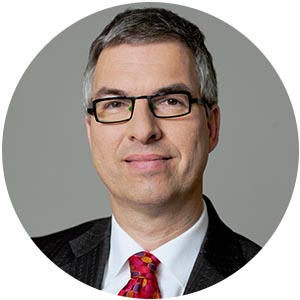
Rabobank: Emphasizing Quality
Global Finance: What makes your bank one of the safest in the world?
Bert Bruggink: Being a rock-solid bank is one of the pillars of the Rabobank strategy. A high level of credit-worthiness is an important element for a cooperative, long-term-oriented bank such as Rabobank. High ratings also contribute to Rabobank’s ability to raise funds in the capital markets on attractive terms. Strong capital and liquidity buffers determine financial solidity.
GF: What is the bank’s outlook for this year and 2016?
Bruggink: Economic growth will be more broadly based in 2015. Rabobank expects a continued rise in Dutch house prices, as a result the number of Dutch households with negative equity will decrease further. Furthermore, customers will continue to make relatively large mortgage repayments. There is a possibility of a slight contraction of lending and a limited decrease in amounts due to customers.
At Rabobank we expect a lasting improvement of the quality of the loan portfolio and a reduction of loan impairment charges. Also cost savings remain a priority. Strong capital ratios and a continued focus on more effective use of capital and balance sheet are necessary, so Rabobank’s liquidity position will remain well above requirements.
GF: What keeps you awake at night?
Bruggink: Accommodating more stringent national and international regulations will require intensive and ongoing attention. In view of the forthcoming stricter capital requirements, we are looking at how we can utilize our capital and balance sheet more effectively.



